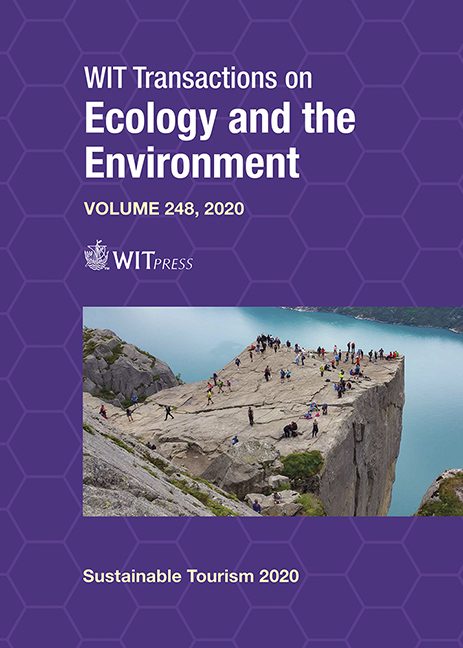CHALLENGES OF COMMUNITY PARTICIPATION IN COMMUNITY-BASED TOURISM IN RURAL AREAS
Price
Free (open access)
Transaction
Volume
248
Pages
10
Page Range
13 - 22
Published
2020
Paper DOI
10.2495/ST200021
Copyright
WIT Press
Author(s)
TSHEPISO J. SETOKOE, TAKALANI RAMUKUMBA
Abstract
Community-based tourism (CBT) has, in recent times, been looked upon as a catalyst for a tourism industry that is sustainable within the rural areas of the developing world. This is seen in its ability to bring about positive change within a rural community inclusive of social justice, empowerment (both economic and social), equity in distribution of benefits and overall community development. These impacts have been seen to justify concerted efforts of tourism development stakeholders in involving local communities, particularly community members in rural areas of the developing world. However, despite the efforts aimed at affording the local communities an opportunity to meaningfully participate in development initiatives aimed at their own development, community participation remains a challenge. The above narrative clearly extrapolates the aim of this particular study as it is intended to establish challenges that the community of Nqileni village in the Eastern Cape province of South Africa are faced with in relation to their participation in the development of tourism and tourism-related initiatives undertaken within the area. The study employed a qualitative research approach coupled with an in-depth exploratory examination of community participation in the development of rural areas through tourism in Nqileni village. This relied on semi-structured interviews using a non-probability purposive sampling technique to collect the empirical data from 25 respondents. The sample of the study comprised of community leadership and general community members in the village. The results of the study indicate that community members felt that their participation in the tourism industry were challenged because of several factors, those being: elitism, factions, greed and corruption, leadership conflict, language and lack of capacity to participate in development initiatives, lack of support from government as well as lack of funding.
Keywords
community participation in tourism, community-based tourism, challenges to community participation, sustainable rural development





